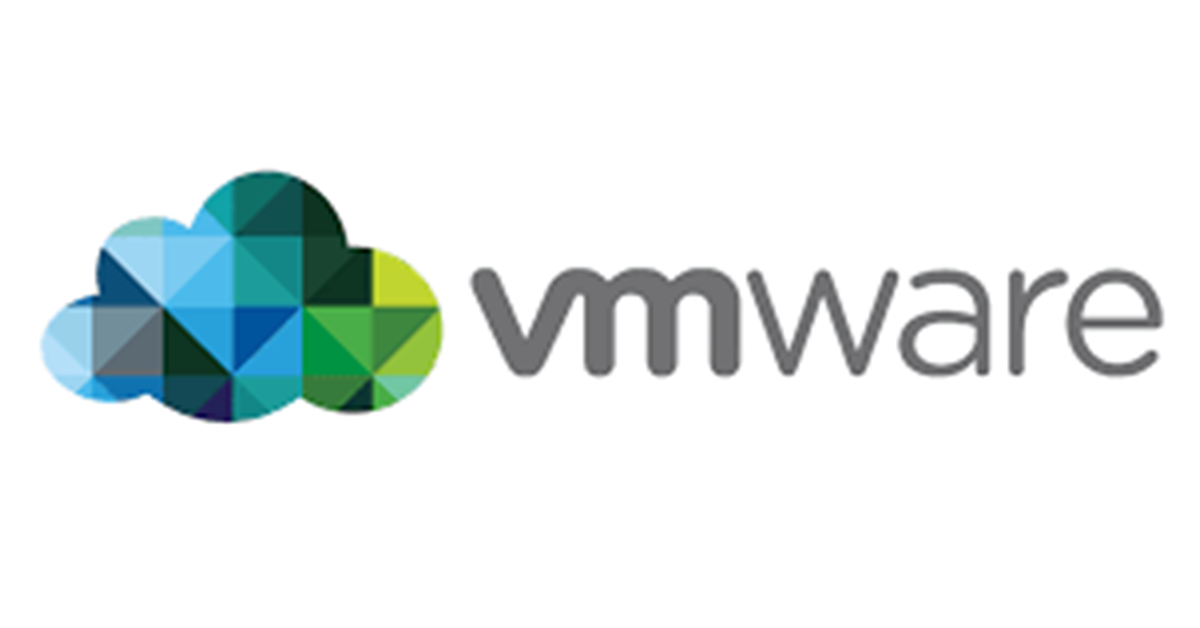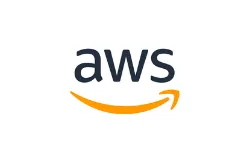VM Ware Interview Questions And Answers
VMware Interview Questions and Answers Here are the top 40 interview questions and the tips in facing the interview.
1. What is VMKernel and Explain the importance
Ans: VMkernel is a virtualization interface between the ESXi host and a Virtual Machine which stores VMs. It is responsible to allocate all available resources of ESXi host to VMs such as CPU, storage, memory, etc. It also controls special services such as Fault tolerance, NFS, vMotion, traffic management, and iSCSI. To access these services, VMkernel port can be configured on the ESXi server using a distributed or standard vSwitch. Hosted VMs cannot communicate with ESXi server in the absence of VMkernel
2. Explain VMware FT?
Ans: FT stands for Fault Tolerance very important and prominent component of VMware vSphere. It provides continuous availability for Virtual Machines when an ESXi host fails. It supports up to 64 GB memory and 4 vCPUs. Fault Tolerance is very bandwidth-intensive and 10GB NIC is recommended to configure it. It creates a complete copy of an entire VM such as compute, memory, and storage.
3. What is datastore?
Ans: Datastore is a storage location where VMs files are stored and accessed. Datastore is based on a file system which is called NFS, VMFS.
4. What is Fault Tolerant Logging?
Ans: The communication between two ESXi hosts is called Fault Tolerant T logging when FT is configured between them. The pre-requisite for configuring Fault Tolerant is to configure the VMKernel port
5. What is the .vmx file?
Ans: It is the configuration file of a Virtual Machine
6. What information .nvram file stores?
Ans: It stores BIOS related information of a Virtual Machine.
7.What .vmdk file does and used?
Ans: Vmdk is a Virtual Machine disk file and stores data of a VM. It can be up to 62 TB in size in the vSphere 6.0 version.
8. What is virtual networking?
Ans: A network of Virtual Machines running on a physical server that are connected logically with each other is called virtual networking.
9. Explain VSS?
Ans: vSS stands for Virtual Standard Switch and It is responsible for communication of VMs hosted on a single physical host. it works like a physical switch automatically detects a VM which wants to communicate with other VM on the same physical server.
10. Explain vDS?
Ans: vDS stands for Virtual Distributed Switch and It acts as a single switch in the whole virtual environment and is also responsible to provide administration, central provisioning, and monitoring of the virtual network.
11. Explain hypervisor and its types?
Ans: Hypervisor is a virtualization layer that enables multiple operating systems to share a single hardware host. Each VM or operating system is allocated physical resources such as CPU, memory, storage, etc by the host. Below are the two types of hypervisors Hosted hypervisor (works as VMware Workstation(application)) Bare-metal (is virtualization VMvisor (software), Hyper-V which is installed directly onto the hardware and controls all physical resources).
12. which is the basic security step to secure vCenter Server and users?
Ans: Authenticate vCenter Server with Active Directory. By using this we can efficiently manage the virtual environment and can also assign specific roles to users.
13. What is Virtualization?
Ans: The process of creating virtual versions of physical components such as Storage Devices and Servers, Network Devices on a physical host is called virtualization. Virtualization lets you run multiple virtual machines on a single physical machine which is also called ESXi host.
14. What are the different types of virtualization?
Ans: Below are the 5 basic types of virtualization Application Virtualization: increased mobility of applications and allows migration of Virtual Machines from the host on another with minimal downtime. Desktop Virtualization: virtualize desktop to increase service and reduce cost Server virtualization: consolidates the multiple OS and physical server can be run on a single server. Network Virtualization: Provides complete reproduction of a physical network into a software-defined network. Storage Virtualization: Provides an abstraction layer for physical storage resources to optimize and manage in virtual deployment.
15. How many vCPUs can be used for a Virtual Machine in FT?
Ans: In vSphere 6.0, there can be up to 4 vCPUs and 64 GB RAM can be used.
16. Which is the new technology used by VMware FT?
17. what happens to FT if vCenter Server goes down?
Ans: vCenter server is only required to enable Fault Tolerance on a Virtual Machine. Once it is configured, vCenter is not required to be online for FT to continue to work. Fault Tolerance failover between primary and secondary will occur even if the vCenter is down.
18. What is the difference between VMware FT and HA?
Ans: The main difference between VMware FT and HA is: FT is enabled per VM and HA is enabled per cluster and VMware. In FT, there is no downtime, because the second copy will be activated in case of any host failure. while in HA, VMs will be re-started and powered-on on another host in case of a host failure,
19. How many maximum standard ports per host available?
Ans: 4096 ports per host are available either in the distributed switch or standard switch.
20. What are the main benefits of a distributed switch (vDS)?
Ans: vDS can provide: Central provision, The central administration for a data center, and Monitoring
21. What is the VMKernal adapter and explain its uses?
Ans: VMKernel adapter provides network connectivity to the ESXi host to handle network traffic for IP Storage, NAS, Fault Tolerance, vMotion, and vSAN. For each type of traffic such as vSAN, vMotion, etc. separate VMKernal adapter should be created and configured.
22. Explain the use of port groups in data center virtualization?
Ans: It is used to segregate network traffic such as vMotion, FT, management traffic, etc.
23. Explain the port groups are configured in ESXi networking?
Ans: Virtual Machine Port Group – Used for VM Network Service Console Port Group – Used for Service Console Communications VMKernel Port Group – Used for iSCSI, VMotion, NFS Communications
24. Explain VLAN and its uses in virtual networking?
Ans: A logical configuration on the switch port to segment the IP Traffic where each segment cannot communicate with other segments without proper rules mentioned is called VLAN and every VLAN has a defined number called VLAN ID.
25. Explain VLAN Tagging?
Ans: The process of inserting VLAN ID into a packet header to identify which VLAN packet belongs to is called VLAN tagging.
26. Explain promiscuous mode on vSwitch?
Ans: The default mode is Reject. If Accept mode is selected, VM will receive all traffic port groups via vSwitch.
27. What is MAC address changes network policy?
Ans: The default mode of this network policy is Reject. If the Accept is selected, the host will accept the requests to change the MAC address effectively
28. Explain vRealize Operation (vROP)
Ans: vROP provides the operation dashboards for capacity optimization, performance analytics, and monitoring of the virtual environment.
29. Which is the VM Hardware version for vSphere 6.0?
Ans: Version 11
30. Which is the VM hardware version for vSphere 6.5?
Ans: Version 13
31. Platform Services Controller ( PSC ) was introduced in which version of vSphere?
Ans: PSC was introduced in vSphere 6.0. vSphere 6.0 is also called as Virtual hardware version 11.
32. Explain Forged transmits network policy?
Ans: The default mode is Reject. If Accept is selected, the host will not compare the source and effective MAC address transmitted from a Virtual Machine
33. What are the important components of vCenter Server architecture?
Ans: Below is the three main components of vCenter Server architecture.
- vSphere Client and Web Client: a user interface.
- vCenter Server database: Embedded PostgreSQL or SQL server to store inventory, resource pools security roles, etc.
- a security domain in the virtual environment
34. What is PSC and explain its components?
Ans: PSC stands for Platform Services Controller and it is first introduced in version 6 of VMware vSphere which handles infrastructure security functions. The three main components are
- VMware Certificate Authority (CA)
- Licensing service
- Single Sign-On (SSO)
35. What are the main deploying methods of PSC
Ans: We can install PSC in two ways. They are Embedded, and Centralized
36. What are the three network security policies/modes on vSwitch?
Ans: Forged transmits, Promiscuous mode, MAC address change
37. What are the two different types of vCenter Server deployment?
Ans: The two deployment types are mentioned as below: Embedded deployment.
38. How many hosts can manage avCenter Server in vSphere 6.0?
Ans: In vSphere 6.0, a single vCenter Server can manage up to 1000 hosts either invCenter or Windows Appliance
39. How many hosts can be managed by a cluster in vSphere 6.0?
Ans: A single cluster can manage up to 64 hosts (Maximum)
40. What are the disk types are in VMware?
Ans: There are three disk types in vSphere. They are: Thick Provisioned Lazy Zeroes: every virtual disk is created by default in this disk format. Physical space is allocated to a Virtual Machine when a virtual disk is created. It can’t be converted to a thin disk. Thick Provision Eager Zeroes: this disk type is used in VMware FT. All required disk space is allocated to a Virtual Machine at the time of creation. It takes more time to create a virtual disk compare to any other disk formats. hin provision: It provides on-demand allocation of disk space to a Virtual Machine. When data size grows, the size of the disk will grow with that. Storage capacity utilization can be up to 100% with thin provisioning.
Few other interview questions:
- What are your future goals?
- What do are your interests outside of work?
- What could you offer to this job differently?
- How do you deal with pressure?
- you be ready if the job requires frequent travelling?
- What type of work environment do you prefer?
The key to acing any job interview is to make sure that all your answers are tailored to be in line with the company values, its goals and the specifics pertaining to the job you are applying for.
Study Tips and VMware Certification Interview Questions:
The certification of having VMware qualification is considered one of the best certificates among information technologies, which proves competence in virtualization and cloud computing technology. As you prepare for your VMware interview, you need to be familiar with the relevant theoretical and practical issues associated with VMware Certified Professional Training (VCP) and VCP certification.
Below are some typical interview questions and study hints for your VMware Certification voyage.
Common Interview Questions:
1. Differentiating VMware virtualization from conventional server virtualization.
Learn about the fundamentals of virtualization such as server virtualization, Desktop virtualization, and network virtualization.
2. Discuss the idea of a VMware hypervisor.
Learn about different hypervisors such as Type 1 (bare metal) and Type 2 (hosted).
3. What are the best practices for configuring and managing virtual networks in VMware contexts?
Get familiar with the concept and management of virtual switches (VMs), VLANs, and network configurations in VMware settings.
4. How about we first take a look at VMware’s vSphere, which refers to what exactly?
Pay attention to VMware vSphere components including ESXi host, vCenter server, and virtual machines management.
5. Outline the VMware HA and FT features.
The need for HA and FT with regards to the availability of virtualized applications.
6. How does a virtual machine migrate with vMotion VMware?
Learn about live migration techniques such as vMotion and the advantages and challenges they involve.
7. What is NSX and how does it provide better security for virtual networks?
Get to know network virtualizations and security details that come with VMware NSX, including micro-segmentation.
8. Know how to Troubleshooting common problems in VMware virtualized setups.
Troubleshoot practice scenarios and familiarize yourself with the vSphere Client, vCenter server alarms, and logs.
Study Tips:
- Hands-On Practice: Hands-on experience is crucial. Create a VMware laboratory to prepare for setting up and configuring virtual machine, network, and storage environments.
- Official VMware Documentation: Study VMware’s official documentation and guides.
- The seminars offer detailed insights into various VMware tools and approaches.
- Online Courses and Tutorials: Obtain relevant training on VMware products such as taking part in VMware training classes or online tutorials.
- Various options include advanced exam training programs in virtual machines and software.
- Practice Exams: Reviewing helps you test what you know and pinpoint mistakes too.
- Taking mock tests will prepare you for the actual exam settings and learn to control time.
- Join VMware Communities: Join VMware communities and forums. Connecting with experts may offer great ideas about the certification tests as well.
Practical knowledge of VMware concepts and constant learning is essential for success in a certificate interview.
Common Mistakes to Avoid in VMware Interviews
Preparing for a VMware interview requires taking note of some common mistakes that may hinder your progress. It is important to showcase that you have mastered VMware technologies following the right VMware training and certification.
Here are some common mistakes to avoid during VMware interviews:
1. Lack of VMware Training and Certification:
Among the most critical blunders individuals commit is failing to buy appropriate VMware education and accreditation. Formal training and certification like VMware Certified Professional (VCP), and VMware Certified Advanced Professional (VCAP) add weight to your abilities and make you a qualified applicant for this position.
2. Lack of Practical Experience:
Practical experience is as important as theoretical knowledge. Employers usually try to search for people with experience, not only knowledge that can be applied to practical life situations. If possible, it is advisable to enroll in practical hands-on labs, simulations, and some projects as these will really sharpen your practical skills.
3. Inability to Troubleshoot VMware Issues:
The role of a VMware professional is to identify and resolve different problems associated with virtualized platforms. Work on troubleshooting typical cases of poor performance, network problems, and storage failures. Having the ability to showcase your problem-solving skills, will put you ahead of other job seekers.
4. Poor Communication Skills:
Effective communication forms the basis of a successful job, and VMware positions are no exception. To make this simple, you have to simplify intricate technical elements into layman’s terms. Try briefing and narrating your VMware projects and experiences in an organized and clear manner.
5. Lack of Knowledge about Latest Updates:
The updates and new feature releases by VMware are quite common. It is a clear sign that one does have an interest but no serious passion for it or is reluctant to catch up with all the latest developments in VMware technologies. Keep up-to-date with recent developments and prepare to share ideas on how they may advantage prospective employers.
Conclusion
Taking courses on formal VMware training should be coupled with relevant certifications, practical experience, strong communication skills, soft skills, and troubleshooting capabilities, as well as keeping up-to-date with new trends, which can greatly help improve your odds in an interview. Evading these typical blunders will even prove that you are an expert and someone interested in VMware-associated jobs.
Tips on How to Pass a VMware Technical interview
Knowledge on such virtualization technologies as VMware in a rapidly changing technological environment determines modern success in IT. The technical questions in the VMware interview require extensive knowledge about virtualization principles, practical skills, and a deep understanding of VMware commodities. Success in such interviews requires full preparations.
Importance of VMware training and certification
Understanding VMware Basics:
In order to pass an interview for VMware, you need to begin with basics. You can learn the basics of virtualization such as hypervisors, virtual machines, snapshots, and clusters. Become acquainted with critical VMware goods such as vSphere, vCenter, ESXi, and NSX.
Hands-on Experience:
Practical experience is invaluable. Make an effort to do something at home with a VMware Workstation, Fusion in order to gather practical skills. The practice activities comprise of virtual machine creation and management, network configuration, and high availability deployment. Solving real world problems develops your problem solving skills; these are very important in technical interviews.
VMware Training:
Join recognized VMware learning programs like Apponix. Our programs are focused and offer well-strung learning paths that cover the basics of each topic comprehensively. Our company proposes multiple training programs ranging from beginner’s level courses geared toward specific job titles or expertise levels. Our courses contribute to your self-confidence when you are being interviewed thereby making your knowledge even bigger and better.
VMware Certification:
The ability to attain VMware certifications will ensure that you are highly competent in virtualization as a specialist. There are many certifications available to suit varying skills such as VMware Certified Professional (VCP) and VMware Certified Advanced Professional (VCAP) offered by VMware. Listing certificates on a resume and highlighting them at interview denotes your dedication to lifelong learning as an expert in VMware skills.
Problem-Solving Scenarios:
Be ready with technical situations and questioning issues on technology. Get to know how you can solve the most common VMware trouble spots quickly. This shows that you can present your problem-solving strategy during an interview, analytical abilities and practical knowledge.
Conclusion
Technical interview with VMware requires a mixture of theory, practice, and problem solving. Apponix provides VMware training plus certification that not only gives understanding but you will be certified and that makes you different in IT job field. Staying committed to this routine should give you adequate preparation that will make you ready to pass VMware technical interviews, setting you on a path leading to a job in the area of virtualization.






.webp)
